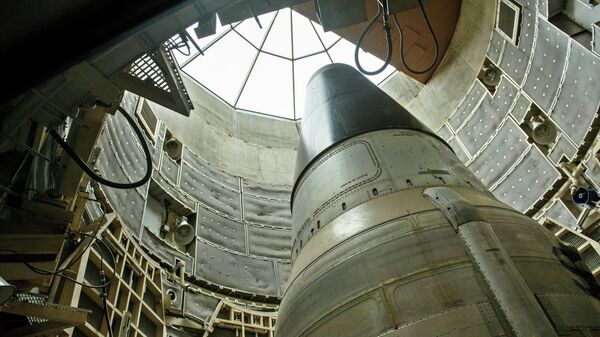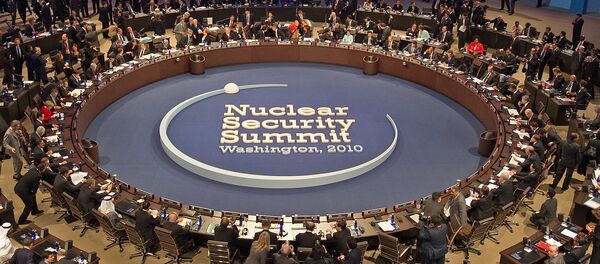In its analysis of Obama's nuclear policy, Defense One recalled Senator John McCain saying: "The Cold War ended almost 20 years ago, and the time has come to take further measures to reduce dramatically the number of nuclear weapons in the world's arsenals." This was also Barack Obama's goal, as he pledged "to seek the peace and security of a world without nuclear weapons."
Obama's early presidency is associated with considerable success, involving a new trilateral policy that included a Nuclear Posture Review to reduce the number of American nuclear weapons; a disarmament treaty with Russia that preserved critical verification procedures and trimmed both nation's arsenals; and the first Nuclear Security Summit, the largest-ever convening of heads of state focused on nuclear weapon policy.
The latter, in particular, led to 12 countries completely eliminating nuclear material that could be used for armament production, including the equivalent of 4 bombs worth of nuclear material in Ukraine, removed from the country just before the 2014 coup.
According to Defense One, the most prominent victory in Obama's nuclear legacy is, most likely, the Joint Comprehensive Plan of Action (JCPOA), a seven-nation accord on Iran's nuclear program that came into effect in January of this year. It will never be known if Iran posed a clear and present danger to wage nuclear war, but at least Obama achieved what he was aiming for: Iran is not a nuclear threat.
A closer analysis of the President's achievements reveals that his more ambitious goals remain unfulfilled. He was not able to ban nuclear testing, he could not achieve significant cuts in the US and the Russian nuclear arsenals, and he was not able to end the production of materials intended for use in nuclear weapons.
It is unclear if the roadblocks to Obama's nuclear-weapon goals are the result of a lack of political will to overcome an entrenched military bureaucracy, but the fact remains: new nuclear armament projects have recently been announced, and what was labeled as a policy to maintain a "safe, secure and effective arsenal" turned out to be a $1 trillion plan to adopt a new ICBM program and develop a cruise missile; both weapon systems intended as replacements for the entire US Cold War nuclear arsenal.
"Some argue that the spread of these weapons cannot be stopped, cannot be checked — that we are destined to live in a world where more nations and more people possess the ultimate tool of destruction." Those were Obama's words in 2009. In the little time he has left in power, the hopelessness of that statement may become the nuclear legacy of a President judged by his deeds, not by his visions.



